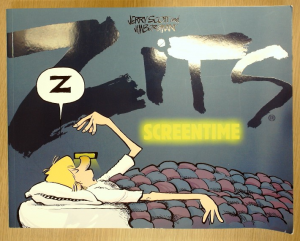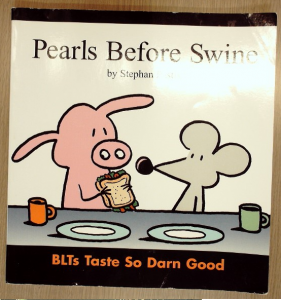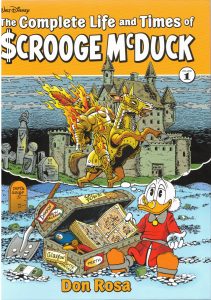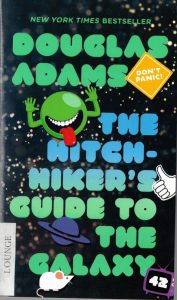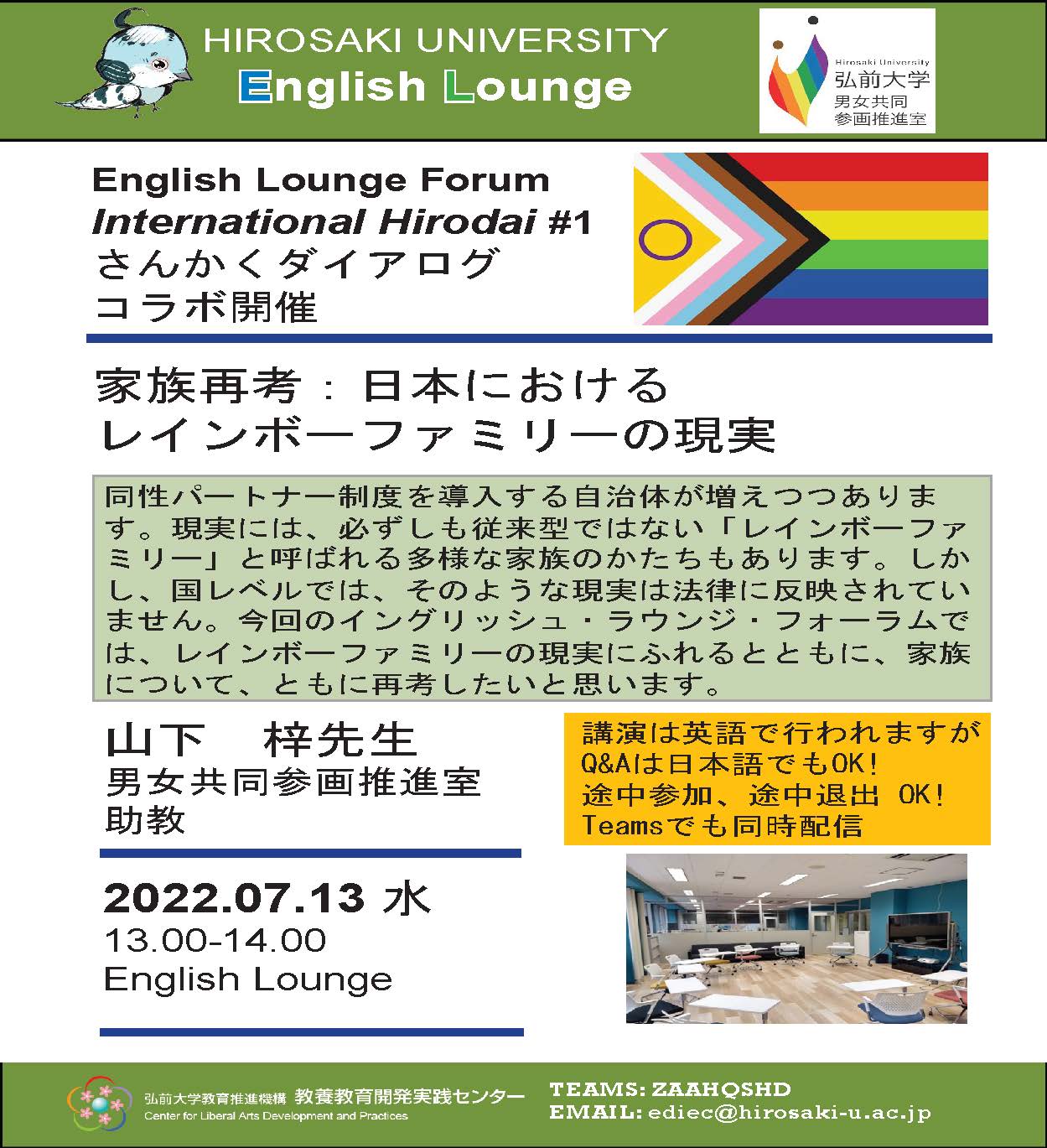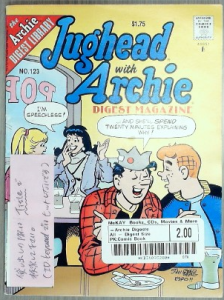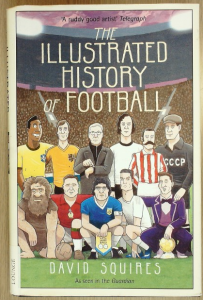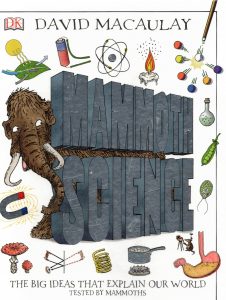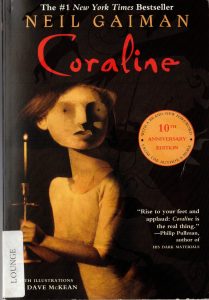[Welcome to the EL Book Introductions series. These posts are all short (<180 words) introductions/reviews of books in the EL library. They focus on telling you what we think will be interesting for you, a college student and English learner, so use them to help you find the right book for you. You can also use the tags to find books about topics you might be interested in.]
_______
This is a comic about being a typical teenage boy in the US. Many of the jokes connect with stereotypes about teenage life. For example, the main character Jeremy sleeps late, hates school, eats a huge amount of food, thinks his parents are really boring, likes cool cars, is obsessed with his girlfriend, and has really big feet. Maybe you can relate to some of these stereotypes? Maybe they seem weird or surprising to you?
Zits, like Pearls Before Swine, is a comic that has been running in newspapers for a long time—since 1997, in fact. Unlike the Pearls volume in the English Lounge, this book of Zits is very recent, from 2020. Where Pearls’ humor is often dark and mean, Zits is light-hearted and kind. Where the former is notorious (famous, in a bad way) for its simple, ugly art style, the latter has gorgeous and complicated pictures inspired in part by Calvin and Hobbes (also in the English Lounge). These two books are interesting to compare.
My two cents: You might be surprised to see one or two political strips in this book. Even though comics are fun for both children and adults in the US, the artists sometimes include serious messages, too.
